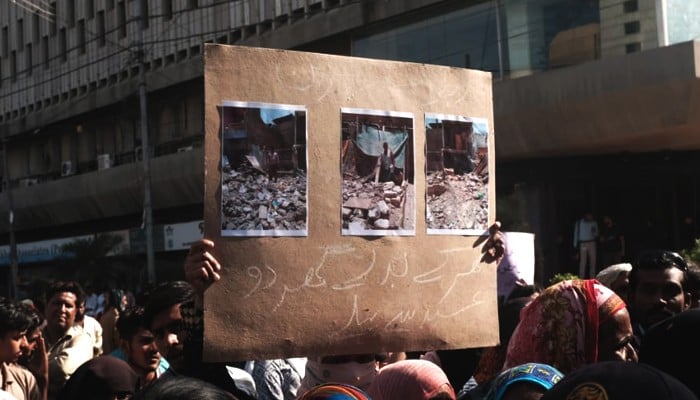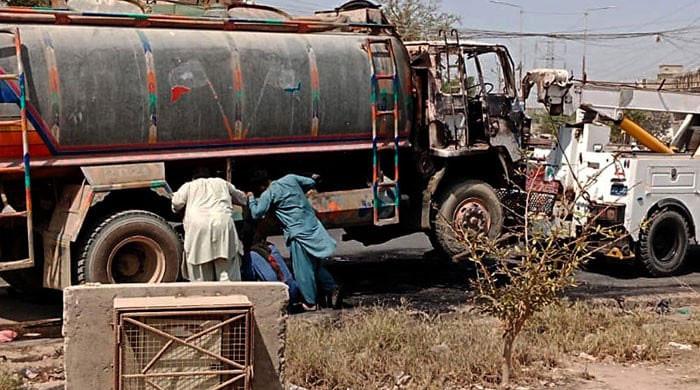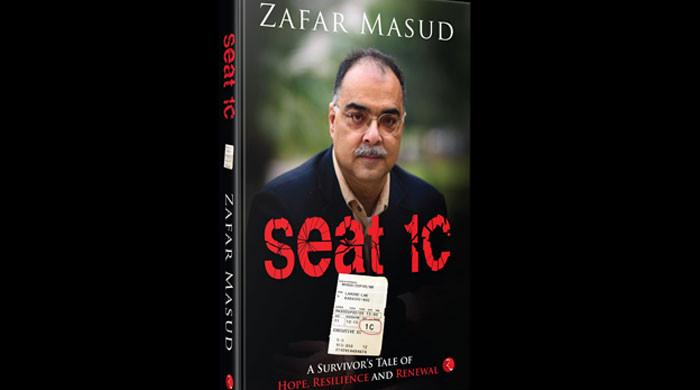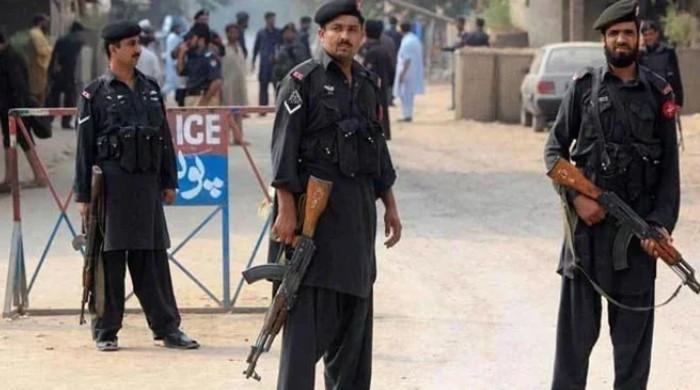Helpless under the open sky, KCR affectees protest for alternative homes
KCR affectees and activists reiterated their demand of alternative homes in accordance with the SC's orders
June 10, 2019
KARACHI: Protesters from the metropolis joined representatives of the people displaced by the anti-encroachment drive again on Sunday for a rally-turned-demonstration against the demolition of their homes on account of the Karachi Circular Railway (KCR) project.
Activists, as well as some of those forced into homelessness, reiterated that they were not against the KCR plan but were, in fact, demanding that their basic rights as Pakistani citizens be fulfilled and they be provided with alternative residence if the project is to go ahead.
Participants in the rally — from Regal Chowk to the Karachi Press Club — explained that women, children, elderly, and the sick from the affected communities have been pushed out on the streets and roadsides and families have been yearning for shade, amenities, and places to just rest.
Somewhere between 4,500 to 5,000 houses are set to be demolished by the Pakistan Railway, which has been aggressively tearing down homes that they term are "illegal".
'Just plain wrong'
One of the activists in the protest told Geo News: "In the name of progress and development, the oppressed are being kicked out of the houses they have called their home for years, their dwellings knocked down and the roofs above their heads snatched, and they are being displaced."
"This is just plain wrong," she noted, adding that if they talked about the human rights violations, they were attacked by saying they "were defying the Constitution" and that the goal of "those of us who are humane, compassionate, and empathetic is to convey a message".
Holding placards and banners, their messages included chants such as "Land mafia ke khilaaf, jiddo jehed tez ho [hasten the struggle against the land mafia]," "Karachi Circular Railway ke mutassireen ko mutabadil ghar dou [Provide alternative housing to the affectees of the KCR]," and "Mehnatkash tabqe ke ghar mismar karna band karo [Stop demolishing the houses of the working class]."
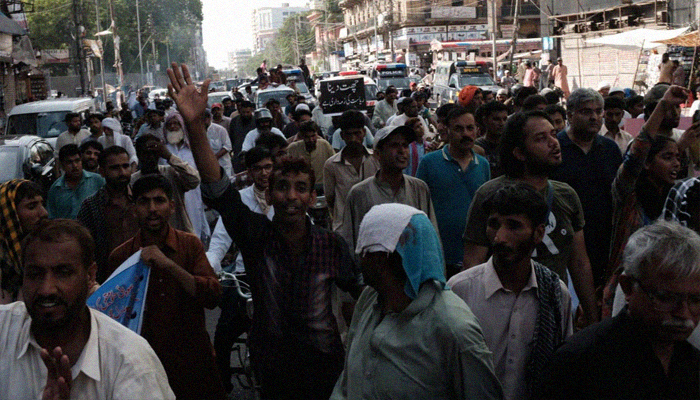
Anti-poor demolitions
A protester told Geo News: "We are protesting here against the continuing 'anti-poor demolitions' under the guise of the Supreme Court's orders for Karachi."
She said about 4,665 houses were set to be demolished and some have already been razed to the ground. "During Ramzan and the Eid [Eid-ul-Fitr], these affectees have been sitting on the remains and rubble of their decades-old homes in the scorching summer heat. Does this kind of thing happen in any state?"
Another demonstrator asked: "These people are oppressed [and] they are poor, where will they go? For them, make alternative arrangements even if those arrangements are small. But do that first before going ahead with the KCR plan."
Protesters, activists, and representatives of the displaced people said a review petition had been filed, twice, to the Supreme Court of Pakistan.
Stability of development
Speaking to Geo.tv over the phone, Qurat Mirza, a member of the feminist group Aurat Haq as well as the Women Action Forum (WAF), said: "It is the state's responsibility to provide shelter to people. Human life should be prioritised over development projects.
Mirza added: "What would the use of progress — or roads and railway tracks — be if the people whose lives are supposed to improve are displaced? How stable would the development be without showing compassion to the citizens?
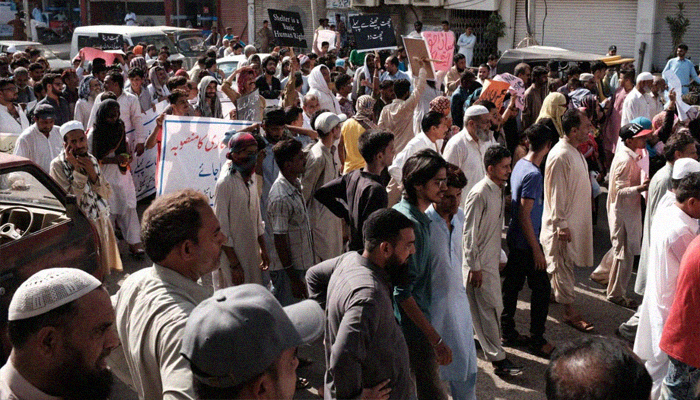
Moneeza Ahmed, also a member of the aforementioned groups as well as one of the organisers of the Aurat March, also reiterated that the KCR affectees should be given precedence and resettled first and then such projects can be implemented.
Downing thousands of homes without implementing or presenting any kind of resettlement plan was not justice, they added.
Geo.tv also spoke with prominent human rights activist and lawyer Mohammad Jibran Nasir, who raised another question: "When the courts have not even heard the grievances of the affected people, how then is it justice? Their demands of resettlement haven't been heard."
'Condemnable behaviour'
Nasir commented on how an earlier incarnation of the KCR had allocated funds for the resettlement of these people but now, however, there are none.
It is also noteworthy, the lawyer-activist pointed out, that the politicians who campaigned and canvassed for votes in these areas prior to the election have now turned a blind eye to the people living there.
"It is, after all, condemnable behaviour of the politicians," he said, adding that it was easy for the privileged people living in elite neighbourhoods to justify the anti-encroachment drive by saying the communities were not regularised but they need to understand that people from these areas are vital to Karachi's economy.
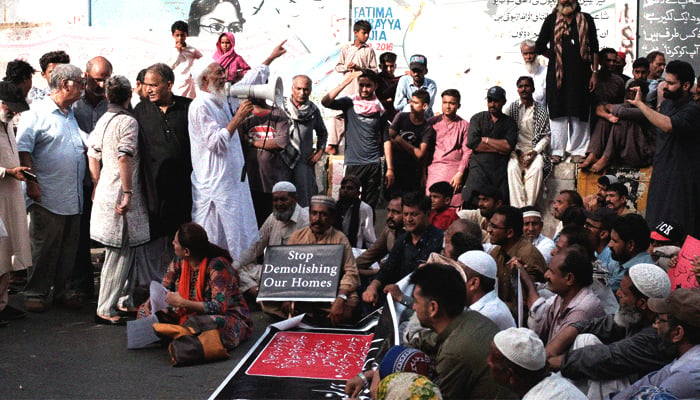
Nasir observed how it implied that the poor were being seen as criminals and the rich and powerful as necessary and innocent.
Rich let go with fines but poor demonised
Khurram Ali, the coordinator of the Karachi Bachao Tehreek launched by the Awami Workers Party (AWP), also had the same sentiment as Nasir on how the local and national political parties were silent on the matter. He also highlighted that many of the people targeted by the anti-encroachment drive were only given one-day notices.
Ali said the sudden campaign was aimed at the eviction of labourers and workers from Empress Market and Urdu Bazaar and residents of 28 other settlements — be it in accordance with the directives of the World Bank or the KCR project.
It is also pertinent to notice the language being used, he said, where the Japan International Cooperation Agency (JICA) termed people from these areas as "Project Affected Persons" but the latest reincarnation of the KCR labels them as encroachers.
In fact, it was a requisite in the JICA’s demands that the residents be honourably resettled, he underscored.
"Our Constitution says the government is responsible for shelter. Some of these people have leases, while others were given certificates by the KMC. They just didn't sprout up randomly.
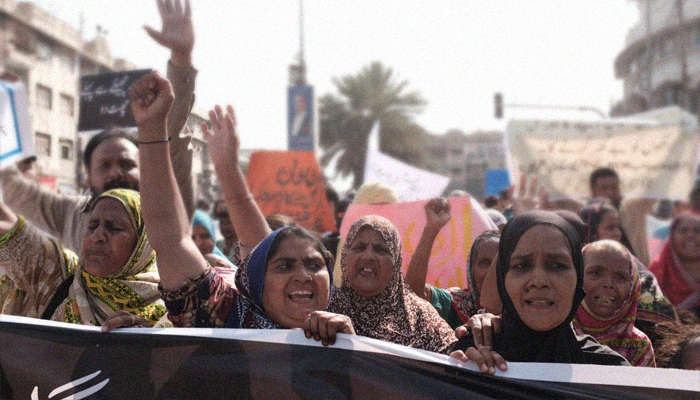
“The rich are let go with fines but the poor are demonised,” he said.
Further, speaking of the city and its complications, Ali noted how expensive it is to live in Karachi and that, coupled with real estate moguls’ collusion — an open secret — to jack up prices, makes adequate accommodation even more taxing.
Burden?
In terms of pros and cons, on the other hand, urban planners have claimed that this project would cater to not even five percent of Karachi's traffic. The costs would be too high to maintain and it may have to either be subsidised or priced exorbitantly, effectively translating into a burden on people and the taxpayers.
“The first responsibility is to resettle people. No development comes at the expense of people’s roofs, jobs, food or businesses,” he said.
Both Ali and Nasir also mentioned that the people who live in these communities are the same ones who built Karachi. “Take the cobbler, the gardener or the driver; they all live in these areas.
“The Supreme Court has ordered that these people be rehabilitated in a year and it should exactly be that way. Resettle them or provide alternative housing first then work on the project.”
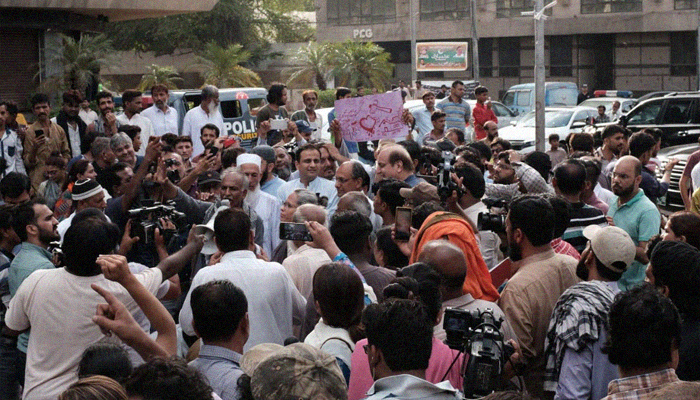
Late last month, too, hundreds of the displaced and homeless people had turned up to voice their grievances to the authorities, lamenting that the leadership had not made true on their promises to relocate them to other areas.
Provide 'all basic necessities'
The residents had commented on how the capitalistic KCR project had knocked down their homes, not allowed them to collect their belongings and valuables, and left them stranded in the scorching heat of the metropolis’ unforgiving summers.
That protest was fueled by the KMC's move on May 28 to bulldoze a big chunk of the Ghareebabad and Musa Colony areas, terming them illegal encroachments.
At that time, the KCR Mutasirin Action Committee via a press release had said: “In accordance with the Supreme Court’s orders, a plan of resettlement of those displaced by the KCR should be made with the representatives of the displaced on an urgent basis.
“We do not oppose the resumption of the KCR project. To resolve the traffic issues of the metropolis, the KCR project’s resumption, too, is a step in the same direction.
"Therefore, the displaced should be resettled on state-owned land near their original residence where they be provided all basic necessities; till the time the displaced are not resettled, the anti-encroachment drive will assuredly be hindered,” it had demanded.

